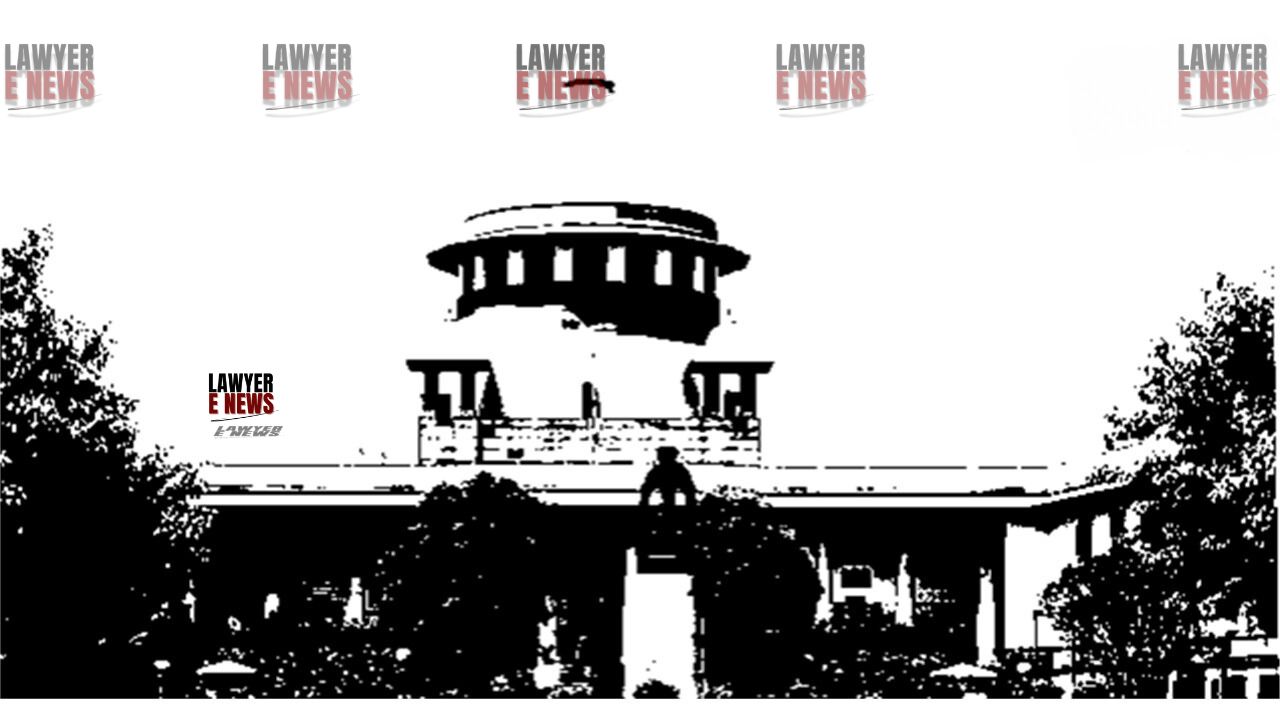-
by Admin
15 February 2026 2:36 AM



In a significant ruling, the Supreme Court on October 15, 2024, allowed Omkar Ramchandra Gond, a candidate with 44% speech and language disability, to pursue an MBBS degree under the Persons with Disabilities (PwD) quota. The Court held that merely having a disability of 40% or more does not automatically disqualify a candidate from admission to medical courses under the Rights of Persons with Disabilities Act, 2016 (RPwD Act). This judgment emphasizes that a reasonable accommodation approach must be adopted to assess a candidate's ability to pursue professional courses, ensuring their right to inclusive education.
The Court observed that merely having a quantified disability of 40% or more, as per the National Medical Commission (NMC) guidelines, cannot be the sole basis for denying admission to medical courses. A candidate’s functional competency must be assessed before disqualifying them. It directed that Disability Assessment Boards must provide detailed reasons when declaring a candidate ineligible for pursuing a course, and their decisions should be open to judicial review.
Omkar Ramchandra Gond, a promising student from Latur, Maharashtra, who suffers from a 44% speech and language disability, qualified for the National Eligibility cum Entrance Test (NEET) 2024 for admission to MBBS under the PwD and Other Backward Classes (OBC) categories. After successfully clearing the examination, Gond applied for admission under the PwD quota. However, the Disability Assessment Board at Sir JJ Group of Hospitals, Mumbai, declared him ineligible for admission, citing his disability as exceeding 40%, in line with the NMC’s guidelines.
Gond challenged the decision before the Bombay High Court, arguing that the guidelines were discriminatory and that his disability did not impede his ability to pursue medical education. As the High Court did not grant him interim relief, Gond approached the Supreme Court.
The key legal question was whether Gond’s 44% speech and language disability automatically disqualified him from pursuing an MBBS course under the PwD quota, and whether the NMC guidelines were consistent with the objectives of the RPwD Act, which aims to promote inclusive education and provide reasonable accommodations to persons with disabilities.
The Court emphasized that the RPwD Act guarantees the right to inclusive education, which means that students with disabilities should not be excluded from educational opportunities based solely on their disabilities. It highlighted that the concept of "reasonable accommodation," as defined under the RPwD Act, requires educational institutions to make necessary modifications to support persons with disabilities.
"Quantified disability per se will not disentitle a candidate with benchmark disability from being considered for admission... Disability Assessment Boards should positively record whether the disability will or will not come in the way of the candidate pursuing the course," the Court observed.
The Court further noted that the NMC’s guidelines, which exclude candidates with 40% or more speech disabilities, result in an "over-inclusive classification," treating those who may be fully capable of pursuing the course the same as those who are not. Such a blanket disqualification violates the principles of equality under Article 14 of the Constitution, the Court held.
The Supreme Court directed a fresh medical assessment by a board at Maulana Azad Medical College, Delhi, which concluded that Gond's disability would not hinder his ability to pursue an MBBS degree. Based on this favorable report, the Court allowed Gond to secure admission to the MBBS course.
The Supreme Court allowed Gond's appeal and directed that he be granted admission against the seat that was kept vacant for him. The judgment reiterated that Disability Assessment Boards must base their decisions on functional capabilities, not just on a quantified percentage of disability. It also directed the NMC to reformulate its regulations to better align with the RPwD Act and ensure that future applicants are not unjustly disqualified.
Date of Decision :October 15, 2024
Omkar Ramchandra Gond v. Union of India & Others.
